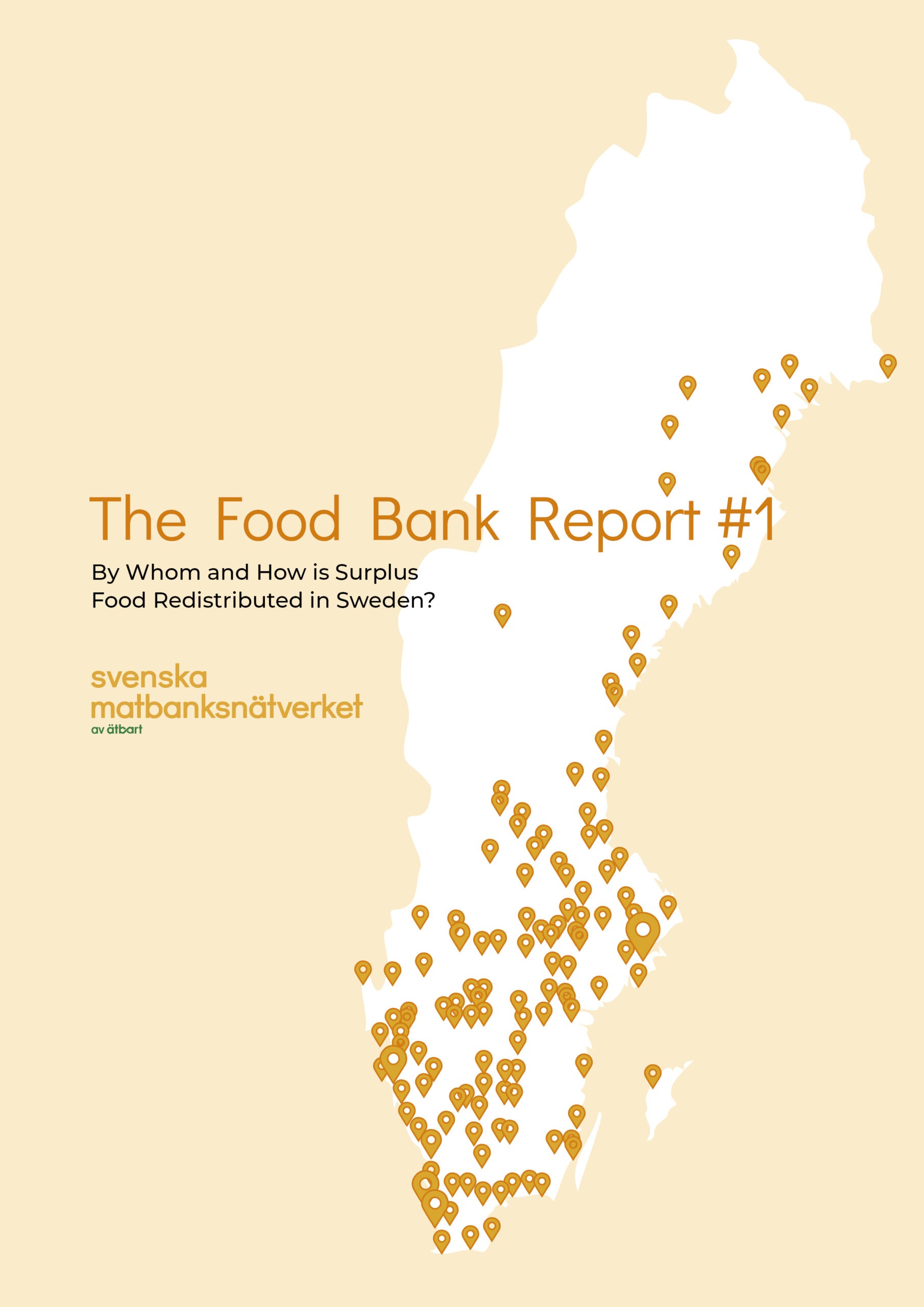Today Ätbart releases the translated version of ’The Food Bank Report #1’! Who are the organizations distributing surplus food? How has the development of food donations progressed in Sweden? Which groups are seeking food assistance and why? All this and much more can be read about in the Food Bank Report. It provides a nationwide overview of food redistribution and does not shy away from addressing difficult questions about ethics, politics, and possible future scenarios. The content is based on over a hundred interviews with civil society organizations, research, and government documents. The material has been collected during the year-long project ”Svenska matbanksnätverket”, mainly funded by Svenska Postkodlotteriets Stiftelse.
You can read or download the report here.
Executive summary
’The Food Bank Report #1 – by whom and how is surplus food being redistributed in Sweden?’ explores the different ways of which food is redistributed and clarifies what a food bank is in the Swedish context. It includes interviews with representatives of organisations that redistribute food in the four most common ways: through food bags, meal service, solidarity fridges or social supermarkets. The development of donations and redistribution of surplus food is examined by identifying events in society, such as the increased interest in reducing food waste in parallel with widening income gaps, which have influenced the significant increase of food banks over the past 10 years.
The national mapping of food banks shows that there are at least 220 local redistribution organisations from Boden to Trelleborg. Together with the Swedish City Missions, Ätbart has calculated a new estimate showing that around 9500 tonnes of surplus food, which would otherwise have become food waste, is donated annually. Based on over a hundred qualitative interviews, network meetings and other conversations, the report also attempts to summarise the ethical dilemmas faced by food banks. The report highlights problems that arise at the intersection of civil society’s and the municipality’s responsibility for people in need, as well as at the intersection of food companies’ and civil society’s interest in the issue of food waste. Based on contemporary research in Sweden and Finland, the report also criticises the idea that donations are a win-win solution to both reducing food waste and food poverty.
